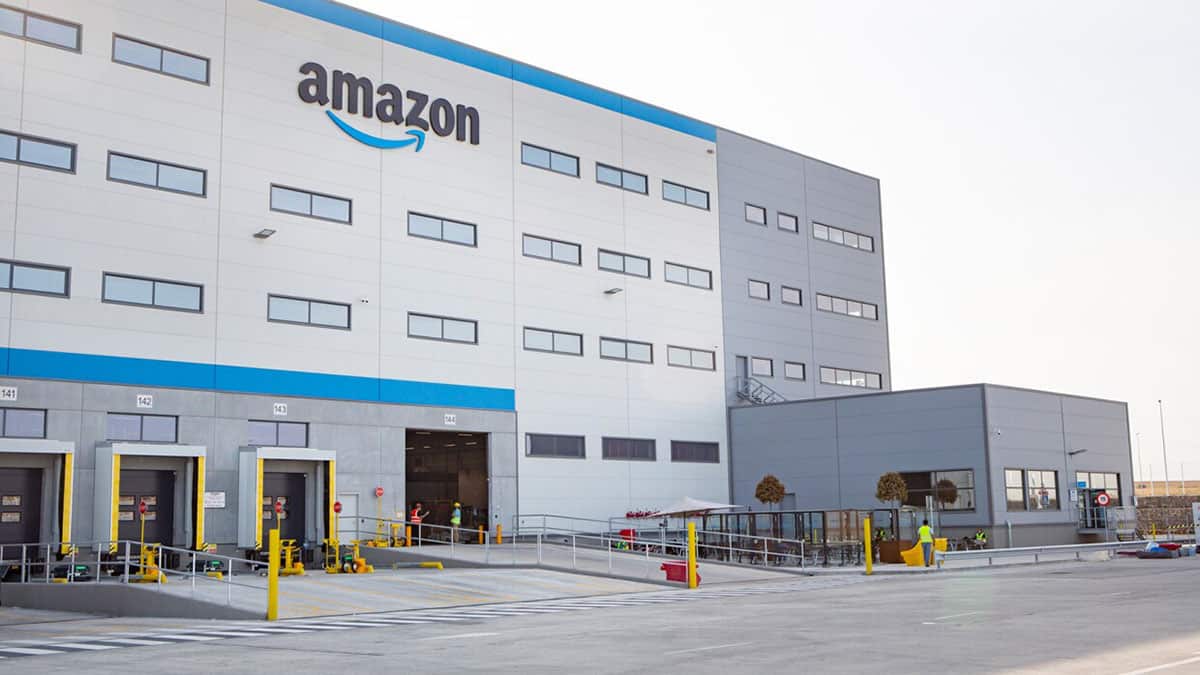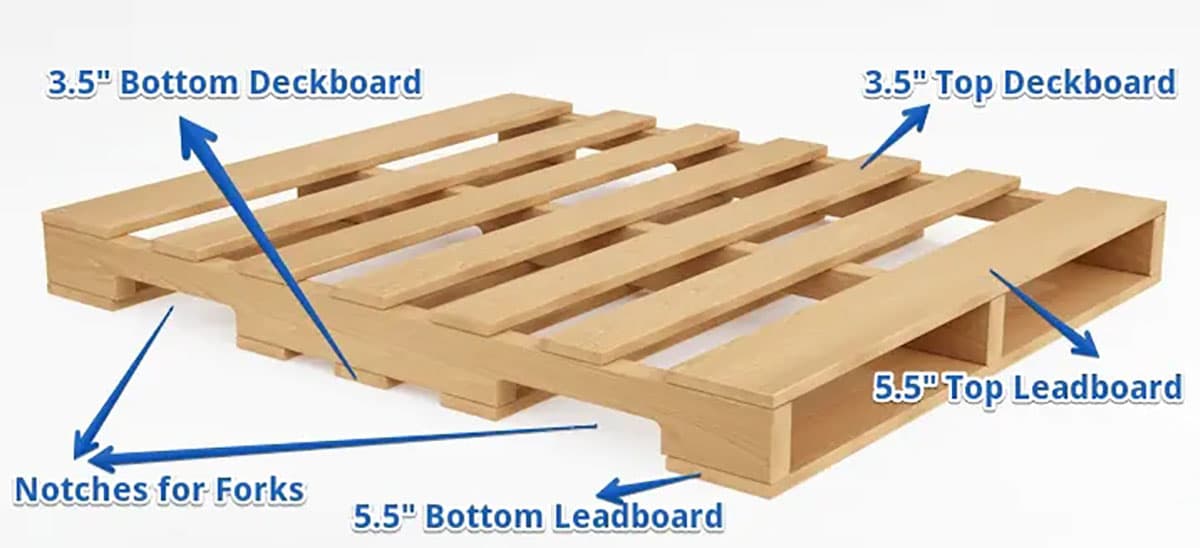
Article content:
Compliance with Amazon's pallet rules is important for the successful transportation of products to the warehouse. Incorrectly prepared pallets will lead to delays, additional costs, and in some cases, even the rejection of your order.
This article will help you understand Amazon's pallet requirements so that you can be sure your products will be delivered without problems.
Using the right pallets is important for several reasons that impact safety, efficiency, and cost-effectiveness in logistics and warehouse management. Here are some of them.
Additionally, using standard pallet sizes promotes compatibility with various logistics systems and equipment. This ensures smoother integration with different links in the logistics chain.
To ensure the smooth operation and prompt delivery of goods to the Amazon warehouse, it is important to adhere to strict requirements. These rules apply to the type, size, weight, condition, packaging, labeling, and loading of pallets.
| Characteristics | USA | EU | Great Britain | Japan |
| Size | 101,6 х 122 cm | 80 х 120 cm | 100 х 120 cm | 110 х 110 cm |
| Material | Standard, wooden ISPM-15 | Standard, wooden ISPM-15 | Standard, wooden ISPM-15 | Wooden, plastic |
| Type | 1) 4-lane frame; 2) single or double pallet. | 1) 4-way acccess EURO or CHEP pallet; 2) single or double pallet | 1) 4-lane frame or CHEP pallet; 2) single or double pallet | 1) 4-lane pallet or one-sided pallet; 2) 2-sided strip pallet and 1-sided strip pallet; 3) only one pallet |
| Standard | GMA B standard or higher | GMA B standard or higher | GMA B standard or higher | - |
| Maximum height | 1) 182,5 cm for single; 2) 254 cm for double pallets; 3) 127 cm for each | In Germany, Central, and Eastern Europe: 1) 180 cm for a single pallet; 2) 270 cm for a double pallet. In France and Italy: 300 cm for a double pallet | 1) 180 cm for a single pallet; 2) 300 cm for a double pallet | 1) 160 cm for a single pallet; 2) 150 cm for a НРТ1 warehouse |
| Maximum weight | 680 kg | 500 kg | 500 kg | 1000 kg |
Amazon has set different requirements for pallets depending on the country
1. Type of pallet. Amazon usually requires pallets to be wooden and comply with ISPM-15 standards (International Standards for Phytosanitary Measures for Wood Packaging Material). This ensures that the wood has been treated to prevent the spread of pests.
Amazon recommends using standard GMA B-grade or higher wooden pallets. When transporting food products, health products, personal care, and beauty items, it is recommended to use GMA 1A or 1B pallets. They need to be 4-way to ensure access to goods from all sides.

What GMA pallets look like
2. Dimensions. The standard pallet size commonly used at Amazon is 48 inches by 40 inches (approximately 122 cm by 102 cm). The maximum height is 72 inches (182.9 cm) for single pallets and 100 inches (254 cm) for double pallets.
3. Weight. The maximum weight for a single pallet should not exceed 1500 pounds (680 kg). This ensures they are not too heavy for Amazon workers to handle.
4. Pallet condition. Pallets must be in good condition without damaged or protruding nails, which could pose a safety risk or damage goods or packaging. Pallets should be free from mold, rot, or other types of contamination.
By following these requirements, entrepreneurs can ensure efficiency and optimized delivery of goods to Amazon warehouses in Europe and the US without losses or delays.

To ensure reliable protection of goods during transportation, it is necessary to wrap the entire pallet with clear stretch film.
Each item should be packed in a sturdy cardboard box suitable for its size. Quality fillers and fixatives should be used to prevent damage to the products during transportation. The heaviest boxes are placed at the bottom of the pallet, while the lightest ones are placed on top. This ensures stability and prevents tipping. The entire pallet should be wrapped in clear stretch film to protect the goods from dust, moisture, and damage.
On each side of the pallet, on the outer side of the stretch film, a label with a unique identifier, quantity of goods, and batch number should be placed.

The pallet identifier label for FBA differs from the FBA Box identifier label.
Pallets should be loaded into containers in such a way that there is 6 inches (15 cm) of space between the top of the pallet and the container lid, 3 inches (8 cm) between stacks and the container walls, and 8 inches (21 cm) from the last row of boxes to the container doors.
Where to get pallets that meet the requirements:
If you don’t know where to find American pallets in Ukraine, contact DiFFreight — we will organize turnkey delivery to the marketplace.
It is important to understand the difference between a pallet and a skid:
When referring to “American pallets” on Amazon, this means the standard GMA pallets mentioned above.
There are different types of pallets Amazon accepts, provided they meet the requirements:
Regardless of the material, the item must meet the marketplace’s requirements for dimensions, condition, and load capacity.
Why choose DiFFreight? It's very simple:
With us, delivering to Amazon FBA will be simple and successful!